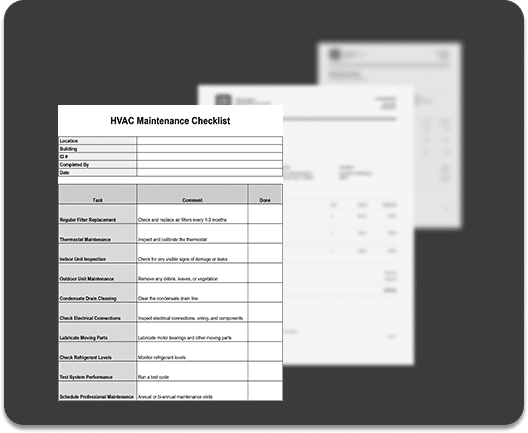Raghav Bhatia and Diali Sahana

Introduction
Recently, the Supreme Court of India, in M/s Knit Pro International v. The State of NCT of Delhi, has observed that offences under Section 63 of the Copyright Act, 1957 (“Copyright Act”) are cognizable and non–bailable. Given the contradictory judgements on this point of law by various High Courts, the authors believe that the instant judgement provides some much-needed clarity.
This article aims to evaluate the position of law on the said issue, first starting with a brief summary of the aforementioned judgement. Second, following the summary, earlier judgements of different High Courts taking contradictory views will be discussed. Third, the article will critically analyse the case laws discussed in the previous sections and come to a conclusion in light of the analysis.
Factual Background
M/s Knit Pro International (“Knit Pro”) had filed an application under Section 156(3) of the Code of Criminal Procedure, 1973 (“CrPC”) seeking directions from the Chief Metropolitan Magistrate (“CMM”) for “registration of FIR against” Respondent No. 2 (“accused”) for offences relating to Sections 51, 63 and 64 of the Copyright Act along with Section 420 of the Indian Penal Code, 1860 (“IPC”). The application was allowed by the CMM by way of an order dated 23rd October 2018 and thus an FIR was registered.
Consequently, the accused filed a Writ Petition before the Delhi High Court (“High Court”), praying for quashing of the criminal proceedings. During the hearing of the case, the accused argued that “the offence under Section 63 of the Copyright Act is not a cognizable and a non-bailable offence” and thus prayed for quashing of the criminal proceedings on that ground alone.
Vide the impugned judgement, the High Court allowed the petition by observing “that the offence under Section 63 of the Copyright Act is a non-cognizable offence.” Aggrieved, Knit Pro approached the Supreme Court in the present proceedings.
Proceedings Before the Supreme Court
The sole issue before the Supreme Court was whether an offence under Section 63 of the Copyright Act is cognizable or non-cognizable?
At the outset, the Supreme Court considered the scope of Section 63 of the Copyright Act which provides punishment for “infringement of copyright or other rights conferred by this Act”. The relevant part of Section 63 of the Copyright Act provides for “imprisonment for a term which shall not be less than six months but which may extend to three years and with fine”.
The Supreme Court then noted Part II of the First Schedule to the CrPC, observing that where an offence is punishable with imprisonment for three or more years but does not exceed seven years, then the said offence is cognizable and non–bailable.
The Supreme Court held that the “offence under Section 63 of the Copyright Act is a cognizable and non-bailable offence” after considering the scheme of Section 63 of the Copyright Act along with Part II of the First Schedule to the CrPC.
The Supreme Court observed so because under Section 63 of the Copyright Act, the maximum term of imprisonment that can be awarded is three years, as it uses the expression “may extend to three years”. Further, under the CrPC, an offence is cognizable where the accused can be imprisoned for three or more years but not more than seven years. Only where the punishment is imprisonment for less than three years does the offence become a non-cognizable offence. The Supreme Court was of the opinion that the language of Part II of the First Schedule to the CrPC is “very clear” and without any “ambiguity whatsoever”.
While the accused had relied on an earlier judgement of the Supreme Court in Rakesh Kumar Paul v. State of Assam, the same was distinguished by the Supreme Court in the present case without much discussion.
The Supreme Court concluded by observing that the High Court of Delhi had “committed a grave error” and thus allowed the appeal by setting aside the said impugned judgment.
Analysis
The authors respectfully submit that the Supreme Court has missed an opportunity to satisfactorily address the debate on this point of law by not discussing the contradictory judgements passed by different High Courts on said issue.
An Offence under Section 63 is Cognizable
The Kerala and Assam High Courts have observed that the offence under Section 63 of the Copyright Act is cognizable and non–bailable. In Abdul Sathar v. Nodal Officer, Anti–Piracy Cell, Kerala, it was observed by the Kerala High Court that an offence under Section 63 of the Copyright Act is cognizable on the basis of similar reasons as given by the Supreme Court in the present case.
Similarly, in Jithendra Prasad Singh v. State of Assam, it was observed by the Gauhati High Court that the expression “punishable with imprisonment for a term which shall not be less than six months but which may extend to three years” is differently worded to the expression “if punishable with imprisonment for less than 3 years” because, under Section 63 of the Copyright Act, a punishment of three years can be imposed. Therefore, it was held that an offence under Section 63 of the Copyright Act is cognizable.
An Offence under Section 63 is Non–Cognizable
In State of NCT of Delhi v. Naresh Garg, placing reliance on Avinash Bhosale v. Union of India, it was observed by the Delhi High Court that an offence under Section 63 is a non-cognizable one. Reliance was also placed on Section 64 of the Copyright Act, under which “a police officer not below the rank of Sub-Inspector” has been given the power to seize the infringing copies. The Delhi High Court opined that if the Legislature intended to make the offence under Section 63 of the Copyright Act cognizable and non-bailable, there would have been no “necessity to specifically authorize the police officer with the power of seizure” under Section 64 of the Copyright Act.
There is a third view also propounded by the Andhra Pradesh High Court in Amarnath Vyas v. State of Andhra Pradesh, wherein it was held that the offence under Section 63 of the Copyright Act does not fall in any of the categories mentioned in Part-II of the First Schedule to the CrPC. The Andhra Pradesh High Court refused to hold offences under Section 63 of the Copyright Act as ‘non-bailable’. However, the High Court also refrained from expressly holding otherwise. The reasoning of the High Court was that merely because the said provision does not “clearly” fall under the third category in Part-II (bailable and non-cognizable) it does not make it fall within the second category (non-bailable and cognizable). Interestingly, Section 70 of the Copyright Act was also noted in that case, which uses the expression: “No Court inferior to that of a Metropolitan Magistrate or a Judicial Magistrate of the first class shall try any offence under this Act”.
In Nathu Ram v. State of Rajasthan, the Rajasthan High Court had referred this issue to a larger bench.
The View Point
As the maximum imprisonment under Section 63 of the Copyright Act can be of three years, it logically cannot come within the ambit of non-cognizable punishments as the same only applies to offences where the punishment is “imprisonment for less than three years”. In Intelligence Officer, Narcotics Control Bureau v. Sambhu Sonkar, the Supreme Court had observed that there exists no reason for excluding the maximum term of imprisonment which can be imposed for an offence when it comes to its classification as cognizable or non-cognizable. Therefore, the very scheme of Part II of the First Schedule of CrPC read with Section 63 of the Copyright Act suggests that the offence under Section 63 of the Copyright Act is cognizable and non–bailable.
Section 70 of the Copyright Act further illustrates that the Legislature always intended to make offences under Section 63 of the Copyright Act cognizable. This is so because, under Section 70 of the Copyright Act, no Court below a Metropolitan Magistrate or a Judicial Magistrate of First Class has been empowered to try an offence under the Copyright Act. However, under the CrPC, a non-cognizable offence can be tried by any Magistrate.
The observations of the Andhra Pradesh High Court in Amarnath Vyas are not correct as the High Court in that case has not appreciated the law that the maximum term of imprisonment, which can be imposed, is to be considered while holding an offence as cognizable or non-cognizable.
Further, the authors respectfully submit that Section 64 of the Copyright Act cannot be the basis for determining whether an offence under Section 63 of the Copyright Act is cognizable or not. It is worthy to note here that before the amendment in 1984, the maximum quantum of imprisonment as a punishment under Section 63 was only one year. Thus, there was a need for an express provision to provide police with the power to seize. Therefore, under Section 64, the Legislature has expressly given police the powers to seize so as to remove any ambiguity. Moreover, as observed in Ani Technologies Private Limited Vs State of Karnataka, since Section 63 of the amended Copyright Act itself provides for imprisonment up to three years, thus making it cognizable as per CrPC, the scheme of Section 64 cannot have any bearing in deciding the issue.
Lastly, the authors submit that reliance cannot be placed on the Supreme Court’s order in Avinash Bhosale v. Union of India (“Avinash Bhosale”). In the said case, the Supreme Court found offences under Section 135(1)(ii) of the Customs Act, 1962 (“Customs Act”) to be bailable. In State of NCT of Delhi v. Naresh Garg, the Delhi High Court had found no operative distinction to distinguish punishment for an offence under Section 135(1)(ii) of the Customs Act and Section 63 of the Copyright Act. However, the judgement in Avinash Bhosale is bereft of any reasoning to reach its conclusion. Therefore, it is humbly submitted that the ruling in Avinash Bhosale cannot be a basis to interpret Section 63 of the Copyright Act as bailable and non-cognizable.
The Policy Perspective
The public policy guiding Copyright law can be said to be two-fold. Copyright aims to reward creativity by giving creators certain exclusive rights over their creation, thereby ensuring the opportunity to economically benefit from their creative efforts. On the other hand, Copyright law also aims to strike a balance between the rights of the creator and the need for public access to information.
Copyright law has been developing over time to adapt to the challenges of piracy and copyright infringement. Offences under section 63 being cognizable allows the police to conduct investigations and register FIRs without the permission of a magistrate and allows arrests without a warrant, putting the crime of Copyright infringement in the category of more serious criminal offences.
Criminal theory posits that to justify a penal consequence, the harm so averted must be greater than the harm done by the penal consequence in question. The Copyright industry in itself forms a significant portion of India’s economy. Piracy results in huge losses not just to the creators holding the copyright, but also to the production and distribution entities which have invested considerable amounts. Further, as Copyright law protects India’s music and entertainment industry, its effective enforcement is imperative for India financially and culturally.
Recently, the Government of India was mulling decriminalisation of several provisions of the Copyright Act to improve its Ease of Doing Business (“EODB”) rankings and incentivise investors. The proposed decriminalisation sparked considerable debate and a report by Federation of Indian Chambers of Commerce & Industry (“FICCI”) resolutely advocated against decriminalisation of Copyright offences, including Section 63 of the Copyright Act.
In the said report, reliance was also placed on India’s obligations under the TRIPS Agreement. As per Article 61 of the said Agreement, the Indian Government has an obligation to provide for criminal procedures with respect to copyright privacy. Further, the same Agreement also stipulates that the Indian Government has to “provide for such enforcement procedures that permit effective remedies that constitute a deterrent for further infringement” [Article 41(1)]. In light of the same, the report was of the view that decriminalising Copyright infringement offences “may run counter to India’s international treaty obligations”.
The basis of the report highlights the policy perspective behind stringent punishments for Copyright offences. Just because Copyright infringement pertains to intangible property, it cannot be held to be different from offences of theft, cheating and breach of trust. Since the impact of Copyright infringement is substantial even within a short period of time, “the dire necessity of deterrence by strict penal actions cannot be overstated for countering copyright infringement”. In light of the same, other major economies such as USA, UK, Singapore, etc. have also imposed criminal sanctions.
Conclusion
In view of the last section, the authors believe that although the Supreme Court has missed an opportunity to discuss the contradictory judgments of different High Courts on the issue before it. Nonetheless, the Supreme Court has not only arrived at the right conclusion in the present case but has also solved the confusion. The Supreme Court’s judgment is not only in sync with the statutory framework of the Copyright Act and CrPC; it is also in line with India’s obligations under the TRIPS Agreement.
While the position of law on this point has been conclusively clarified by the Supreme Court for now, it will be interesting to see if there are any Parliamentary/Judicial attempts to change the same.
As offences under Copyright law mostly concern everyone from large corporations to small artists, the authors believe that the Parliament must incorporate this judgement statutorily. It can either amend Section 63 itself or add another Section. This will bring about consistency and clarity.
Raghav Bhatia is a graduate of Jindal Global Law School (JGLS), O.P. Jindal Global University, Sonipat and an Advocate practising before the Supreme Court of India.
Diali Sahana is a current undergraduate student pursuing a B.A., LL.B. (Hons.) at the West Bengal National University of Juridical Sciences (WBNUJS), Kolkata.



















